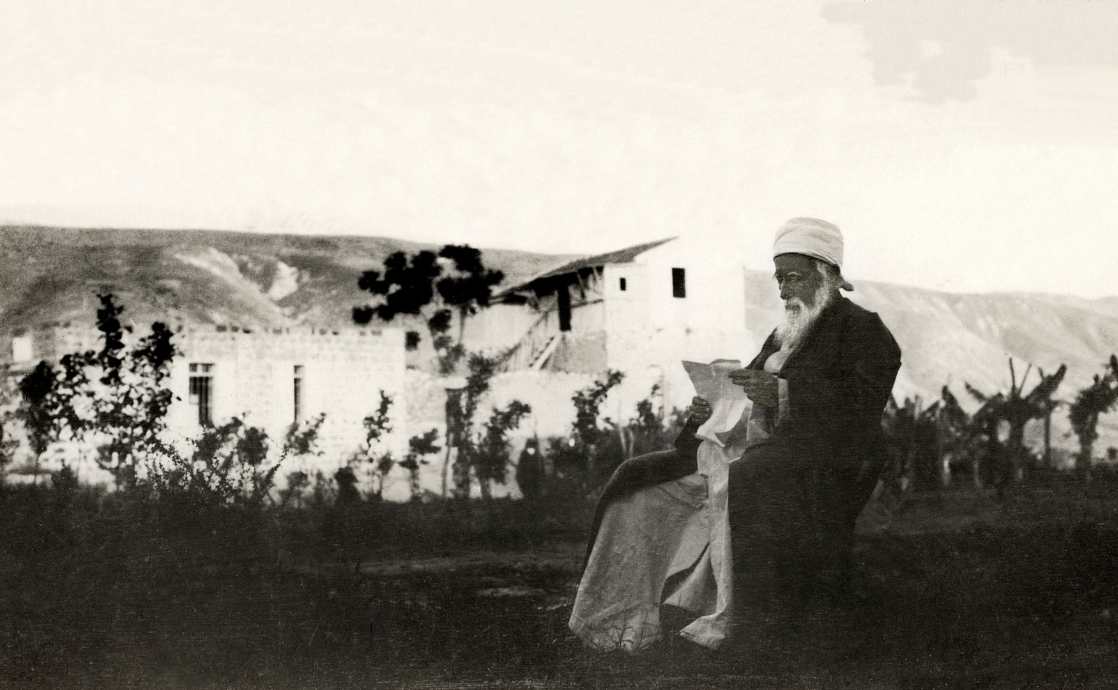In the annals of spiritual leadership, few figures resonate with the profundity and grace of Abdu’l-Bahá. As the son of Bahá’u’lláh, the founder of the Bahá’í Faith, Abdu’l-Bahá exemplified the ideals of his father through his words and deeds. This article seeks to explore the teachings of Abdu’l-Bahá, elucidating their significance and the transformative perspective they offer to humanity. His teachings, rooted in universal principles of love, unity, and service, beckon a renewed understanding of our interconnectedness.
At the heart of Abdu’l-Bahá’s doctrine lies the omnipresent theme of unity. This tenet is not merely a call for tolerance but an imperative for genuine acceptance of the diversity intrinsic within the human experience. Abdu’l-Bahá articulated that to traverse the path of human advancement, one must embrace the oneness of mankind. This radical perspective aims to transcend the boundaries of nationality, race, and religion. By fostering an ethos of unity, Abdu’l-Bahá invites an introspection into our biases and encourages a sagacious embrace of the collective human spirit, catalyzing the dissolution of longstanding divisions.
Furthermore, his teachings are underscored by a profound understanding of justice—a cornerstone for social transformation. Justice, as espoused by Abdu’l-Bahá, transcends mere legalistic interpretations and extends into the realm of moral responsibility. He asserted that the establishment of justice is imperative for the realization of peace. This interrelationship delineates a clear narrative that posits justice not only as an ethical objective but as a precursor to sustainable harmony. The urgency of this message is amplified in contemporary society, where inequities proliferate and justice remains a distant aspiration for many.
Abdu’l-Bahá also keenly emphasized the importance of education, recognizing it as a vital tool for individual and communal empowerment. He declared, “The cultivation of the mind is like the nurturing of a garden.” Education, according to him, should foster not only intellectual acumen but also moral virtues. This holistic approach prompts an inquiry into the current educational paradigms, urging a re-evaluation of curricula that prioritize not merely academic success but also the ethos of service to humanity. Such a transformation in educational philosophy has the potential to yield compassionate leaders equipped with the wisdom to navigate the complexities of modern existence.
Another salient aspect of Abdu’l-Bahá’s teachings is the significance of service to humanity. He envisioned a world wherein individuals dedicate themselves to the betterment of society. This selfless service epitomizes the Bahá’í injunction to live a life of meaning and purpose. Abdu’l-Bahá elucidated that the greatest honor lies in acting for the welfare of others, a notion that profoundly challenges the self-centric tendencies ubiquitous in contemporary life. This paradigm shift from individualism to collectivism fosters a cultural commitment to altruism, thereby engendering a more compassionate and cohesive society.
Abdu’l-Bahá’s theological insights also offer profound shifts in the understanding of spirituality. He posited that true spirituality transcends dogmatic boundaries and invites individuals to engage deeply with the divine. His teachings encourage a personal relationship with God that is informed by love and compassion, steering away from fear and retribution often associated with traditional religious paradigms. This invitation to cultivate a more personal and loving spirituality aligns closely with the intrinsic quest for meaning that many individuals grapple with today.
The virtue of kindness, another critical theme articulated by Abdu’l-Bahá, serves as a foundational principle in the Bahá’í teachings. He advocated for a life imbued with compassion, urging followers to treat every individual with dignity and consideration. This principle dovetails seamlessly with the tenets of unity and service, as kindness serves as the lubricant for harmonious interactions in a diverse world. By fostering an environment of kindness, society can combat the pervasive cynicism and division that often characterizes contemporary relationships.
Additionally, Abdu’l-Bahá offered profound insights on the role of women in society, advancing a progressive narrative that promotes gender equality as essential for societal advancement. He believed that the empowerment of women is a cornerstone of global progress, and this belief reverberates with increasing urgency in modern discourse. By advocating for the elevation of women, Abdu’l-Bahá not only sought justice for half of the world’s population but also underscored the necessity of inclusive participation for a more balanced and vibrant civilization.
In conclusion, the teachings of Abdu’l-Bahá transcend time and culture, offering a roadmap for a more harmonious and equitable world. His emphasis on unity, justice, education, service, kindness, spirituality, and gender equality provides a framework for addressing the tribulations of contemporary society. As humanity stands at a crossroads, the call to revisit and embody Abdu’l-Bahá’s teachings presents a compelling opportunity to shift perspectives. Engaging with his words not only piques curiosity but also challenges individuals to contribute actively to a world characterized by love, empathy, and understanding. In doing so, the legacy of Abdu’l-Bahá continues to inspire a collective journey towards spiritual and social transformation.
